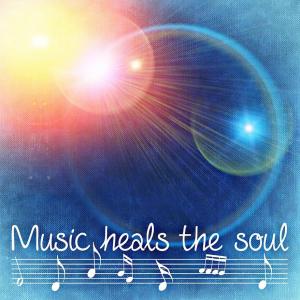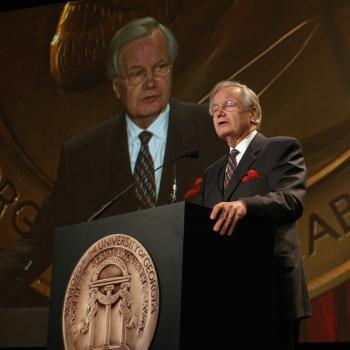
A New Take on an Old Hymn
Music soothes the savage breast – or is it savage beast? Either way, some music soothes the soul. In fact, a new study has found that “Amazing Grace” is the best song for heart health in older people with coronary artery disease.
Over the years, various studies have shown that music helps people physically and mentally. But researchers at the Medical College of Wisconsin in Milwaukee wanted to take it a step further. They wanted to see whether music has a measurable impact on older people with heart disease.
In addition to its findings on “Amazing Grace, the study revealed that the Beatles’ “Hey Jude” and Dolly Parton’s “Jolene” offered some cardiovascular benefits. However, the folk song “This Land is Your Land” by Woody Guthrie offered minimal improvement.
About the Study
Researchers emphasized that their study of 65 people was small and “exploratory” and might “be hypothesis-generating” for future research. Their goal was not to identify songs that had the greatest impact. Rather, it was to determine whether singing positively affected older patients’ heart health.
People involved in the study were 55-to-79-years-old and had a history of coronary artery disease. They watched a 30-minute video of a vocal coach instructing an older student. Then, they sang along to instrumental versions of several songs while researchers measured changes in their blood flow before and after they sang, Christian Today said.
Best Song for Heart Health
Researchers found that singing “Amazing Grace” improved the function of blood vessels around the heart more than the other songs did. The study, published in the online medical journal medRxiv, said that 22 percent of participants experienced better blood flow when they sang the beloved hymn. Thus, the study suggested that “Amazing Grace” is the best song for heart health.
The study suggested that “the physical and emotional effort involved in singing the long-loved hymn might explain the benefits,” Daily Mail reported. “Amazing Grace” is one of the most popular hymns in the world, and millions of Christians and non-Christians are familiar with it.
“How Sweet the Sound…”
“Amazing Grace” could have been a black spiritual, but it wasn’t. It’s a simple song with a complicated history, Premier Christianity Magazine recently said.
The words were written in the late 18th century. But there was no tune associated with them until 1835, when an American named William Walker wrote the melody with the title “New Britain.”
The popularity of “Amazing Grace” spread and became quite popular in unexpected places. Even whites in slave-holding southern states embraced the hymn prior to the U.S. Civil War. Ironically, enslaved African Americans also made it their own, and it finally did develop a connection to black spirituals.
Everyone from Judy Collins and Dolly Parton to President Barack Obama have sung it, and astronaut Kjell Lindren played it on bagpipes from the International Space Station.
The words convey a powerful message, especially when you know the story behind them. Patheos contributor Richard E. Simmons III’s article The Power of Grace tells the story.
But briefly, the words were written by John Newton, a brutal sea captain who once owned and traded slaves. He became a Christian in about 1748 and slowly – very slowly — turned away from his old life.
Newton eventually became a noted abolitionist. And in 1764, he became a minister who wrote the words to “Amazing Grace” for his New Year’s Day sermon in 1773. He could have written the words with himself in mind, as the first verse says:
Amazing grace! How sweet the sound.
That saved a wretch like me!
I once was lost, but now am found,
Was blind, but now I see.
My favorite version of the hymn features Judy Collins with the Boys Choir of Harlem. It’s simple yet deeply moving.
Benefits of Music Therapy
Singing “Amazing Grace” can soothe the soul. But music in general is an “accessible and safe therapeutic” option for older people who may have limitations that prevent them from participating in traditional exercises, the Medical College of Wisconsin study reported.
Researchers explained that music therapy is a good alternative for people who cannot do physical exercises. It offers minimal risk, is easy and accessible, and is popular across cultures.
“The physiological demands of singing are comparable to those of walking at a moderately brisk pace, suggesting that the health benefits of singing may overlap with those of exercise,” the study said.
But researchers cautioned that “unlike traditional exercise, the effects of singing on cardiovascular health have not been extensively studied.”
General Benefits of Music
The Cleveland Clinic pointed out that music therapy helps people…
- Relax
- Explore their emotions
- Feel less anxious or depressed
- Reduce stress
- Regulate their mood
- Strengthen communication skills
- Build social skills
- Improve self-confidence
- Improve coping skills
- Develop problem-solving skills
- Reduce perceived pain
- Improve physical coordination, motor functions and movements
- Improve quality of life
“Music therapy was shown to help the heart to contract and push blood through the body, classical and rock music makes your arteries more supple and listening to music during surgery helps to lower the heart rate to a more calming pace.
“Future studies should explore the sustained vascular response to singing over weeks to months and explore the potential for ‘earworm’ effects between visits.” Earworm refers to the feeling of having a song play around and around in your head.
As for “Amazing Grace,” it may be the best song for heart health in older people because it’s familiar to many. And more importantly, it speaks of God’s forgiveness and our redemption.
The hymn closes with these words:
When we’ve been there ten thousand years,
Bright shining as the sun,
We’ve no less days to sing God’s praise,
Than when we first begun.













